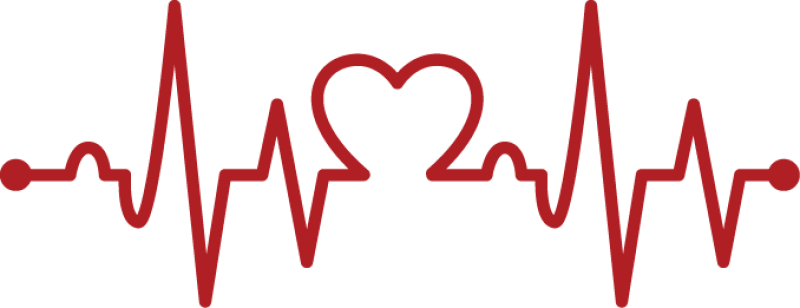Why Get a Cholesterol Screening?
A complete cholesterol test—also called a lipid panel or lipid profile—is a blood test that can measure the amount of cholesterol and triglycerides in your blood. The test can help determine your risk of building up plaques in your arteries, which can lead to narrowed or blocked arteries throughout your body (atherosclerosis).
A cholesterol test is an important tool. High cholesterol levels often are a significant risk factor for heart disease.
What is heart disease?
Heart disease is the number one killer of men and women in the United States. It is the result of atherosclerosis—the progressive narrowing and hardening of the coronary arteries due to the buildup of plaque.
As the narrowing and hardening of the coronary arteries progresses, blood flow is interrupted. Eventually a blood clot may form, leading to a heart attack. There are several risk factors that contribute to the development of heart disease.

Fit4Life Members: $20
Full-Time Employees: Free
Understanding Your Cholesterol Screening Results
Total Cholesterol
Your total cholesterol is the measure of the amount of cholesterol in your blood at any given time. The number represents the combination of the cholesterol lipoproteins LDL, HDL, and VLDL.
If your total cholesterol is less than 200 mg/dl, your risk of a heart attack is relatively low. However, this does not eliminate other health facts that may contribute to your risk. In fact, a third of heart attacks occur in individuals with total cholesterol levels of less than 200 mg/dl. Therefore, even with a low risk, it’s smart to eat right and exercise regularly.
A high reading of total cholesterol stands as one of the most basic indications of a higher heart disease risk.
| Total Cholesterol Level: Less than 200 mg/dl200-239mg/dl 240 mg/dl and up | Risk: Desirable Borderline High |
Total Cholesterol/HDL Ratio
This ratio is calculated by taking your total cholesterol and dividing it by your HDL cholesterol. The goal is to keep the ratio below 5:1. Anything over 5:1 is an unhealthy balance of LDL cholesterol in the blood and puts you at a greater risk of a heart attack.
| TC/HDL Ratio:Equal or less than 3.53.5-5.05.1 and up | Risk: Desirable Borderline High |
VLDL Cholesterol
Very-low-density lipoprotein cholesterol (VLDL) is associated with triglyceride levels and is referred to as "very bad" cholesterol.
There are no specific standards of VLDL. These lipoproteins contain mostly lipids with few proteins. Studies have shown that high VLDLs raise the risk of heart attack and angina.
| VLDL Cholesterol:5-40 mg/dl 40 mg/dl and up | Risk: Desirable High |
LDL Cholesterol
The low-density lipoprotein cholesterol (LDL) is often referred to as the"bad" cholesterol. In excessive amounts, LDL can become deposited in the arteries—leading to a buildup of plaque. This buildup starts the process of atherosclerosis. The lower your LDL cholesterol, the better it is for your heart.
| LDL Cholesterol Level:Less than 100 mg/dl100-129mg/dl 130-159 mg/dl 160-189 mg/dl 190 mg/dl andup | Risk: Optimal Near Optimal Borderline High Very High |
HDL Cholesterol
High-density lipoprotein cholesterol (HDL) is often referred to as "good" cholesterol. It helps protect against heart disease by binding to excess LDL cholesterol and transporting it back to the liver for elimination from the body. An HDL level of more than 60 mg/dl is considered protective against heart disease.
| HDL Cholesterol Level:60 mg/dl and up40-50mg/dl40 mg/dl or less | Risk: Optimal Borderline High |
Triglycerides
Triglycerides are "fats" in the blood and are often associated with low levels of HDL. In addition, they are considered an independent risk factor of heart disease.
| Triglyceride Levels:150 mg/dlorless 150-199 mg/dl200 mg/dl and up | Risk: Desirable Borderline High |
Glucose
This is the amount of sugar in your blood. It is most commonly associated with diabetes.
| Total Cholesterol Level:100 mg/dl or less 100mg/dl and up | Risk: Desirable High |
The Role of Regular Exercise and Weight Loss on Blood Cholesterol Levels
Aerobic exercise is one of the most powerful stimulants to cause the body to produce more HDL cholesterol. However, the threshold of exercise needed to significantly boost HDL production is to burn approximately 300 calories a day. This is done through elevated heart rate exercise.
Exercise reduces triglycerides. Exercise also helps to lower LDL cholesterol. When body weight loss accompanies the exercise and dietary improvements, LDL cholesterol levels are more likely to be reduced.

The Role of Stress on Blood Cholesterol Levels
Chronic, unrelieved stress has shown to elevate LDL cholesterol levels associated with the release of stress response hormones like adrenalin. Learning to properly manage stress is an important strategy to gain and maintain an overall healthy lifestyle.
For more information, visite the American Heart Association website.